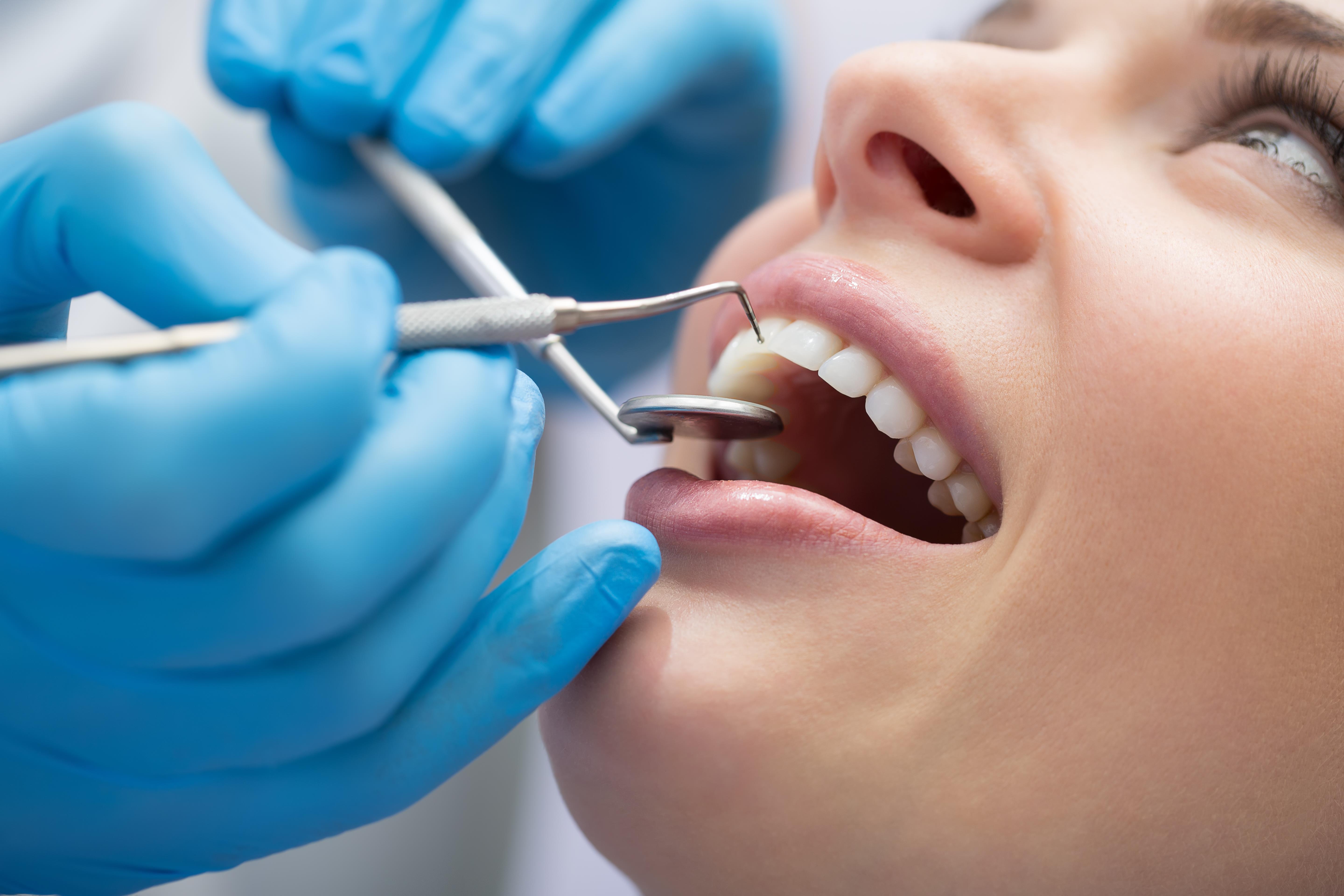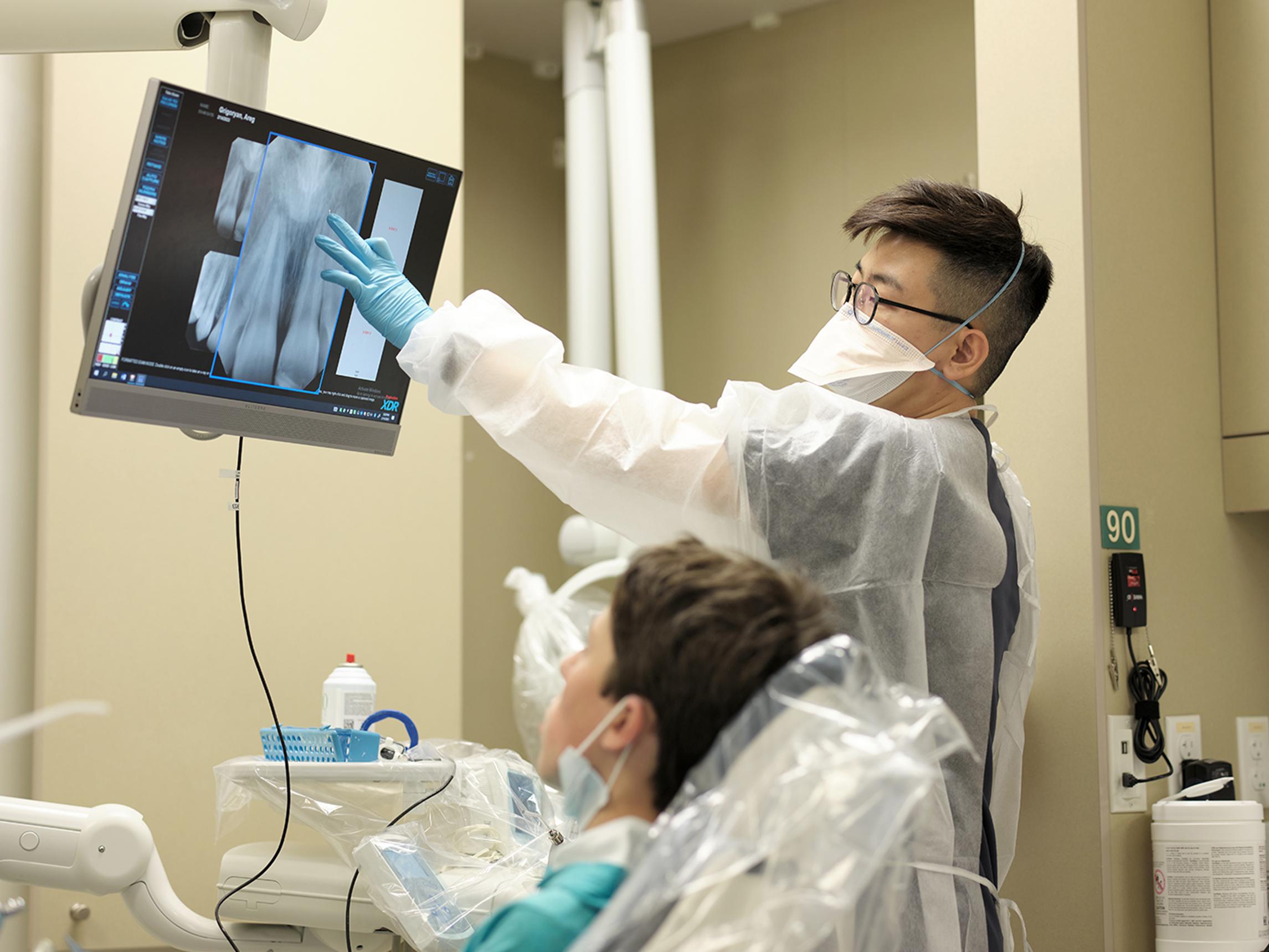Discover the Top Dentist Eugene Oregon Homeowners Trust for Exceptional Treatment
A Guide to Typical Oral Problems That Need a Dental practitioner's Care
Toothaches, for instance, can be symptomatic of serious problems such as cavities, broken teeth, or abscesses, each calling for details treatments like fillings or root canals. Influenced knowledge teeth and jaw conditions can present considerable pain and difficulties.
Toothaches
Toothaches are an usual dental problem that can range from mild pain to extreme discomfort, usually showing an underlying issue that requires specialist interest. This discomfort can come from a variety of resources, including tooth decays, broken or fractured teeth, and dental abscesses. Each of these problems presents substantial dangers if left untreated, possibly causing much more serious complications.
Oral tooth cavities, additionally understood as cavities, are created by the accumulation of plaque that deteriorates tooth enamel, leading to openings or pits in the impacted teeth. Abscesses are painful infections at the root of a tooth or in between a tooth and the periodontal, typically resulting from serious degeneration or unattended cavities.
Efficient treatment of toothaches involves addressing the origin. This might consist of dental fillings for cavities, crowns for split teeth, or origin canals and antibiotics for abscesses. Early intervention by a dental expert can stop more degeneration and minimize pain, making sure optimal oral health and wellness.
Gum Condition
Periodontal illness, a widespread yet commonly forgotten dental condition, materializes through inflammation and infection of the periodontals and sustaining cells. This problem mostly occurs in two phases: gingivitis and periodontitis. Gingivitis, the milder form, presents with symptoms such as red, puffy gum tissues that may bleed quickly during cleaning or flossing. If left neglected, gingivitis can progress to periodontitis, a more serious form characterized by the damage of the sustaining bone and connective cells, eventually bring about tooth loss.
The main cause of gum tissue condition is bacterial plaque, a sticky, colorless movie that constantly bases on teeth. Poor dental health, smoking, hereditary proneness, and specific clinical conditions, such as diabetes, can exacerbate the danger of developing gum tissue condition. Regular oral examinations are vital for very early discovery and administration of this problem.
Treatment for periodontal illness varies from specialist oral cleaning and scaling to advanced procedures like origin planing and periodontal surgical treatment, depending on the severity. Preserving great oral hygiene methods, consisting of brushing twice daily, flossing, and making use of an antiseptic mouth wash, can dramatically minimize the danger of gum disease and advertise healthier periodontals.
Cavities
Cavities, also understood as tooth decays, are a typical dental condition identified by the devastation of tooth enamel as a result of acid-producing microorganisms in the mouth. These microorganisms flourish on sugars and starches from food and drinks, creating acids that slowly erode the enamel, leading to dental caries formation.
Early-stage tooth cavities might disappoint symptoms, yet as they proceed, they can cause toothache, sensitivity to hot or cold, visible openings or pits in the teeth, and staining. If left neglected, tooth cavities can penetrate deeper layers of the tooth, potentially causing extreme discomfort, infection, and also tooth loss.
Protecting against dental caries involves a combination of great oral health practices and dietary behaviors. Routine cleaning with fluoride tooth paste, flossing, and from this source routine dental exams are crucial. Dental professionals might additionally recommend additional safety nets, such as fluoride treatments and dental sealants, to safeguard teeth from decay.
Small tooth cavities can be resolved with oral fillings, which bring back the tooth's framework. Extra sophisticated situations might require crowns or also origin canal therapy if the decay has gotten to the tooth's pulp.

Impacted Knowledge Teeth
Influenced knowledge teeth are a widespread dental issue that happens when the 3rd molars, frequently referred to as wisdom teeth, fall short to fully emerge or align correctly within the mouth. This problem frequently arises from insufficient room in the jaw or an uncommon growth angle of the teeth. Affected wisdom teeth can lead to a variety of issues, consisting of infection, pain, and damage to adjacent teeth.
When knowledge teeth come to be Get More Information influenced, they are often partially appeared or stay completely underneath the gum line. This partial eruption can develop a pathway for germs to get in the periodontals, bring about infections that manifest as swelling, pain, and also high temperature. Additionally, affected knowledge teeth can put in stress on neighboring teeth, possibly creating crowding or moving.
An extensive dental assessment, usually including X-rays, is necessary for identifying affected knowledge teeth. Treatment frequently involves medical removal, carried out by a dental cosmetic surgeon. The procedure intends to reduce discomfort and avoid more difficulties, such as cysts or damage to bordering bone structures. Post-operative care is important to guarantee proper recovery and reduce the threat of infection. Routine dental exams are suggested to check the problem and keep oral wellness.
Jaw Conditions
Jaw disorders, jointly called temporomandibular joint (TMJ) conditions, include a variety of problems that impact the jaw joint and surrounding muscular tissues. These conditions can manifest via signs and symptoms such as discomfort or tenderness in the jaw, difficulty sites chewing, a standing out or clicking audio when opening up or shutting the mouth, and even persistent headaches. TMJ disorders can arise from various factors, including joint inflammation, jaw injury, or regular actions like teeth grinding or jaw clenching.
Medical diagnosis of TMJ problems commonly involves a detailed analysis by a dental practitioner, consisting of a physical exam of the jaw, dental X-rays, and sometimes progressed imaging methods like MRI or CT checks to evaluate the joint's problem. Therapy alternatives differ depending upon the seriousness of the condition. Non-invasive approaches such as physical therapy, dental splints, and drugs aimed at minimizing inflammation and pain are often first-line treatments. In much more serious situations, surgical treatments may be essential to remedy architectural concerns within the joint.
Very early intervention by an oral expert is critical to avoid the development of TMJ disorders and to preserve total dental health. Individuals experiencing persistent jaw pain or disorder must seek prompt examination and therapy.
Conclusion
Toothaches frequently show underlying concerns such as tooth cavities, cracked teeth, or abscesses, needing punctual intervention. Influenced wisdom teeth and jaw conditions additionally call for expert focus to ease discomfort and prevent more problems.
Oral tooth cavities, also understood as cavities, are triggered by the build-up of plaque that wears down tooth enamel, leading to openings or pits in the affected teeth. Abscesses are uncomfortable infections at the root of a tooth or in between a tooth and the gum tissue, normally resulting from serious degeneration or neglected tooth cavities.

Furthermore, impacted knowledge teeth can exert pressure on surrounding teeth, possibly causing crowding or changing.